![]() Elizabethan sonnets are like fantastically complex little puzzle boxes made of words, crammed with extended conceits, puns, double meanings, shifting authorial personas and more. For that reason, Touch Press’ latest and predictably magnificent app based on Shakespeare’s poem sequence, The Sonnets, is both exactly what you need to better understand the sonnets, and a bit more than you need as well.
Elizabethan sonnets are like fantastically complex little puzzle boxes made of words, crammed with extended conceits, puns, double meanings, shifting authorial personas and more. For that reason, Touch Press’ latest and predictably magnificent app based on Shakespeare’s poem sequence, The Sonnets, is both exactly what you need to better understand the sonnets, and a bit more than you need as well.
Touch Press also produced The Waste Land, still a benchmark in adapting a complex literary work for the iPad, so the expectation is for beauty and elegance of design and that expectation is more than fulfilled. The Sonnets features standard texts of the poems, with the option to toggle to a facsimile of the 1609 Quarto, the first published edition.
The accompanying notes — essential for any modern reader trying to plumb the nested and layered meanings of many of the lines — come from the Arden Shakespeare edition, the full introduction of which is also included. These feature not only explanations of some of the more enigmatic terms and expressions, but also brief discussions of scholarly debates about word variations. (Elizabethan spelling was not standardized, and copyediting was pretty much nonexistent in the early 17th century, so there’s a lot to argue about.)
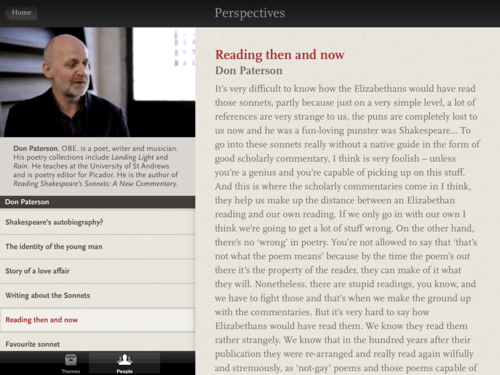
In addition, the app includes commentary by the Scottish scholar Don Paterson, taken from his terrific book “Reading Shakespeare’s Sonnets: A New Commentary.” You can also add your own notes, if you feel bold enough to follow Paterson’s first-rate act. The original content in The Sonnets, which is primarily video, features Paterson and other experts, such as James Shapiro and Katherine Duncan-Jones, speaking extemporaneously on such matters as the origins of the sonnet form, the context in which the poems were written, arguments for and against interpreting them as autobiographical works and such burning questions as the identity of the young man and the dark lady to whom they are addressed. These extras alone are worth $13.99 price tag of the app.
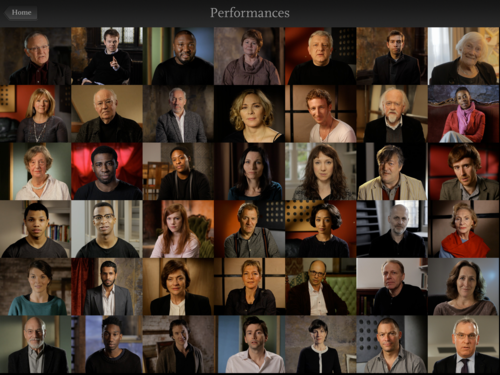
Where the riches become embarrassing is with the inclusion of videos of assorted actors reading each poem. Among the performers are Patrick Stewart, Fiona Shaw (whose rendition of “The Waste Land” was the crown jewel of that app), David Tennant and Dominic West. It’s a commonplace to say poetry ought to be read aloud, and indeed much of it should. Furthermore, Shakespeare himself probably read the sonnets aloud to his friends before they were published.
However, I’m going to go out on a limb here and say that for modern readers the sonnets are best appreciated on the page, in close, multiple readings. The actors, who for the most part approach the poems as dramatic works, evince the common modern view, a legacy of Romanticism, that poetry is an outflow of pure, sincere, personal emotion — not how the Elizabethans (or, for that matter, many contemporary poets) regarded it. (Shaw, who can convey the intellectual dimensions of complex verse better than anyone, is an exception.) On top of that, the sonnets are famous love poems, so the performers address the camera head-on, as if confessing their deepest feelings to the viewer. What gets lost in this approach is the reality of the poems as public, performative works and displays of virtuosity.
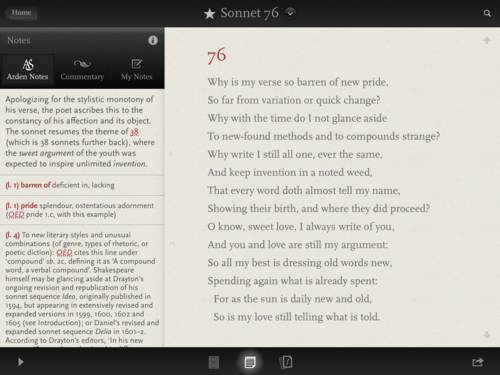
But since those and many other facets of the sonnets are in ample evidence elsewhere in the app, I can’t say it matters much. In one of her videos, Duncan-Jones says she finds it peculiar that people give volumes of the poems as Valentine’s gifts, considering how dark and ambivalent is their depiction of romantic love, but then goes on to speculate that in such cases the giver and recipient probably never get around to actually reading them. Perhaps the videos will charm that constituency, but the true riches of The Sonnets await anyone who chooses to dig deeper.
— Laura Miller


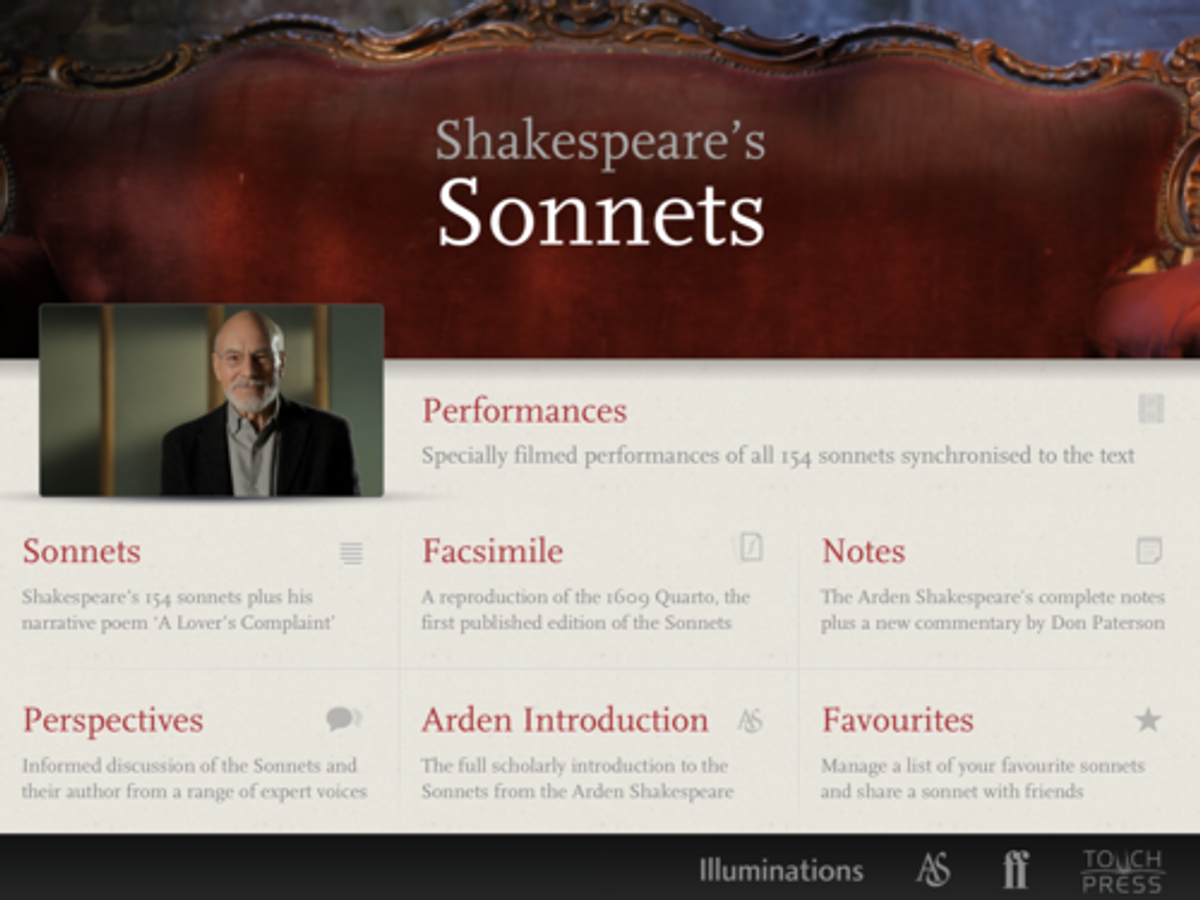
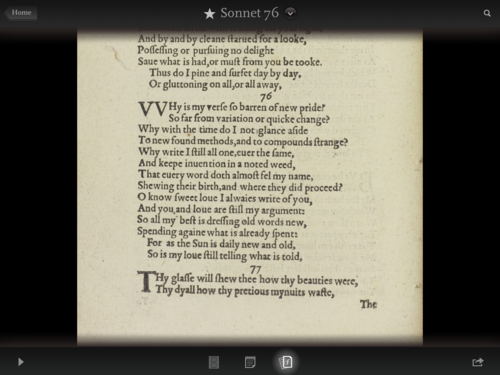
Shares